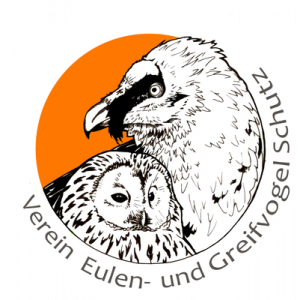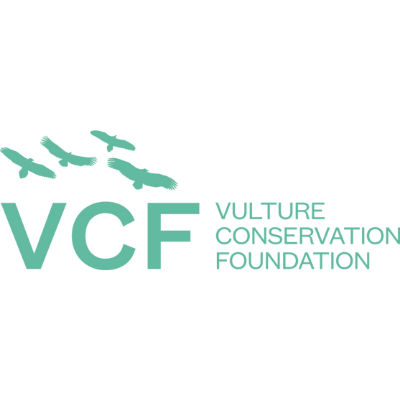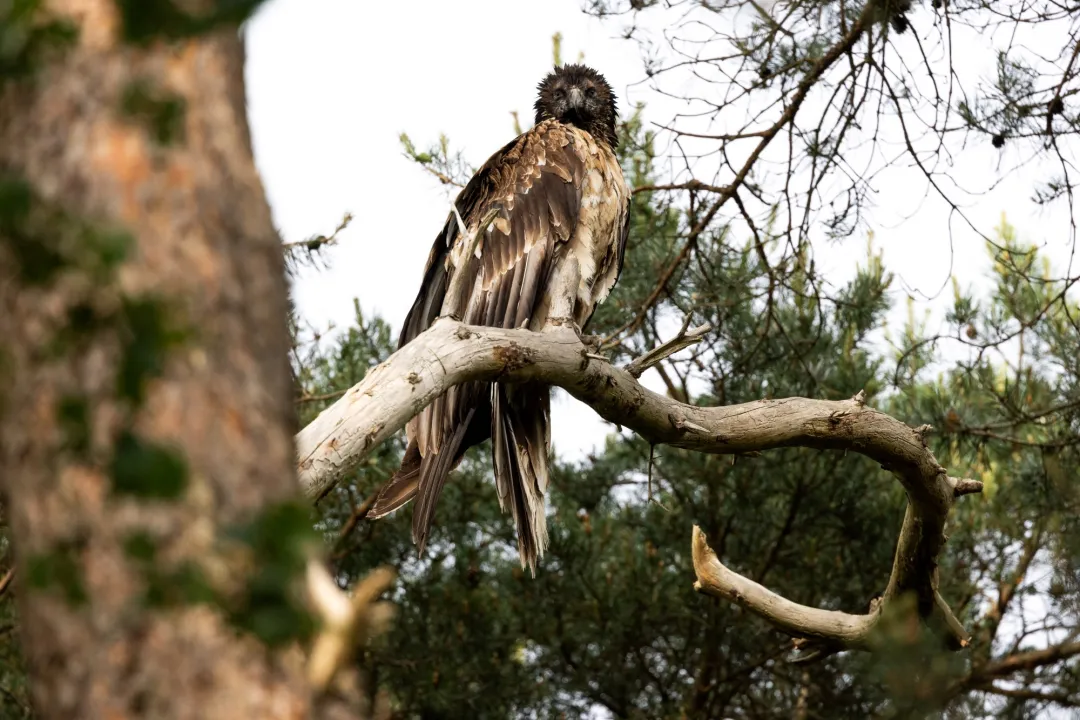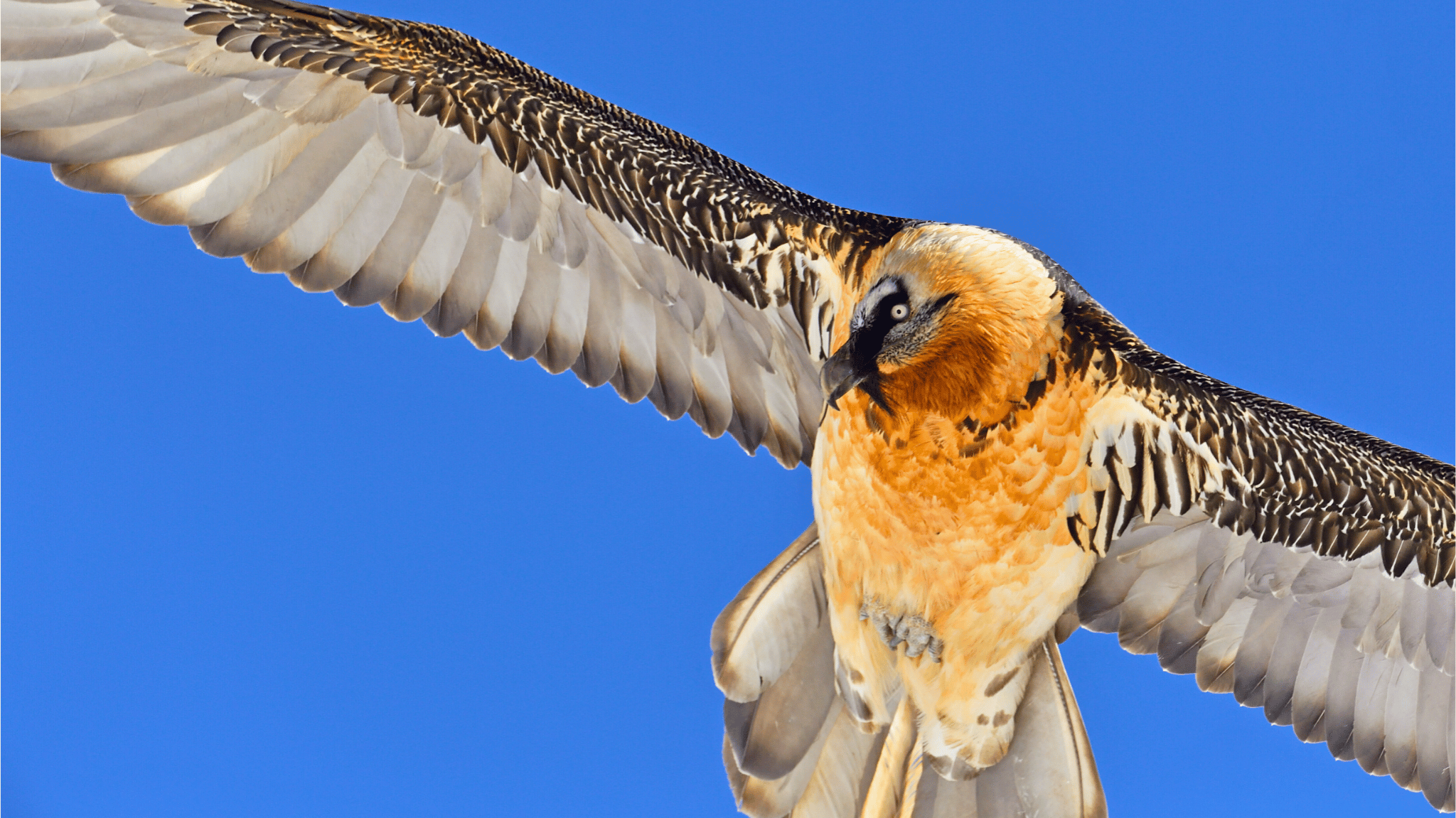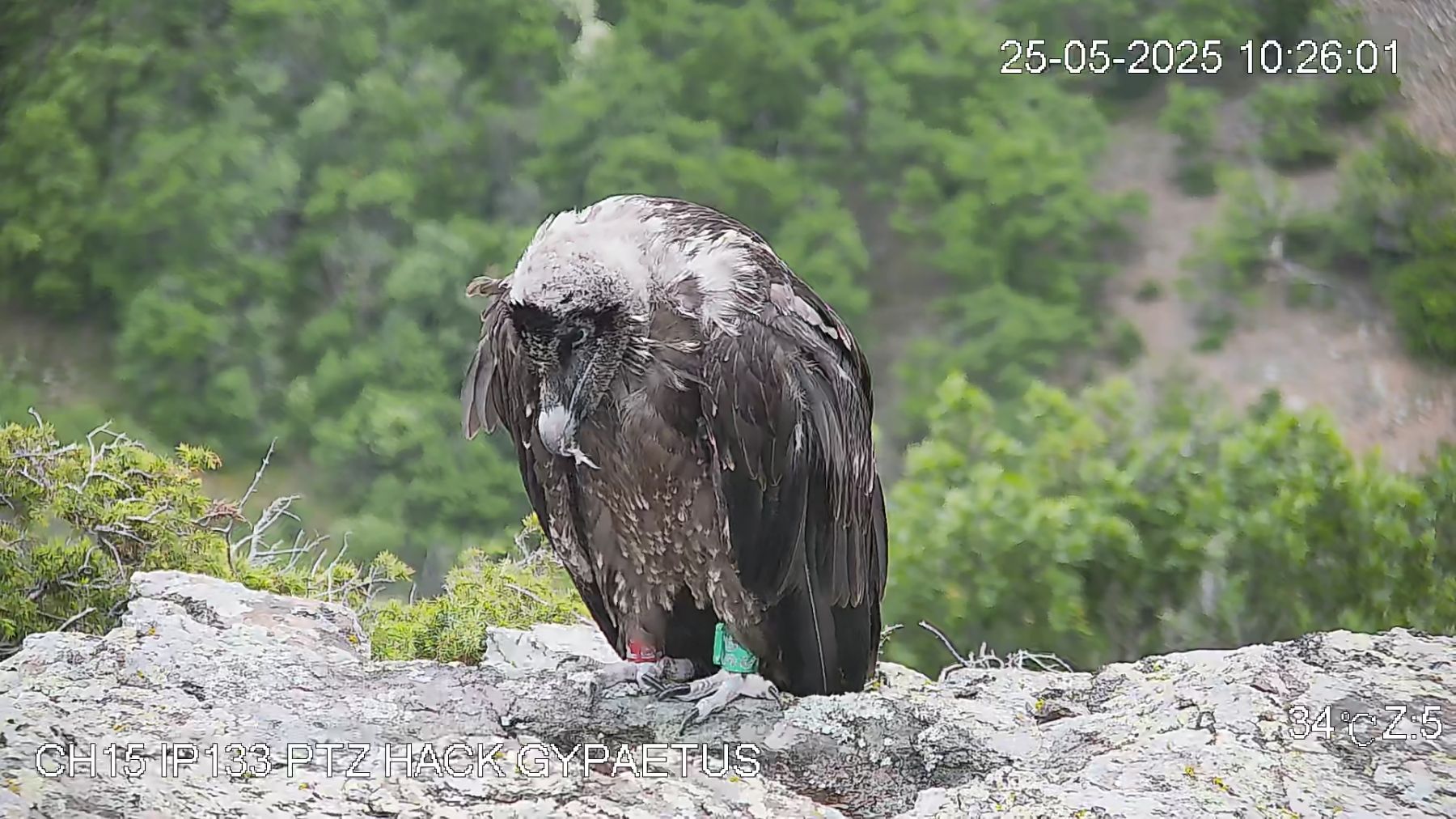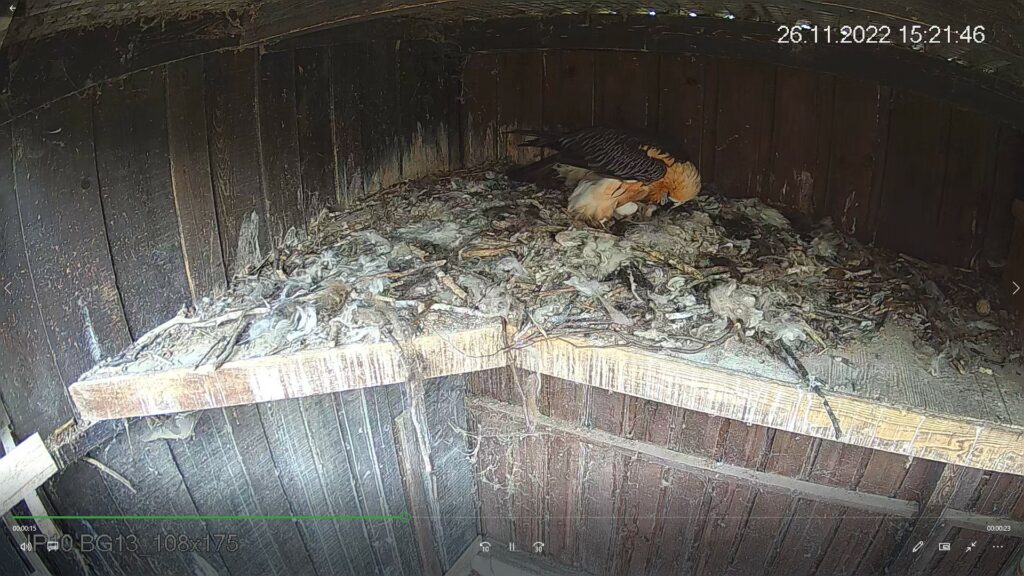
The old Bearded Vulture pair in Austria has laid the first egg of the new captive breeding season again!
Welcoming the first egg of the breeding season
Like almost every year, the pair BG108 and BG175 at the Richard Faust Zentrum Specialised Breeding Centre (RFZ) in Austria produced the first Bearded Vulture egg of the new breeding season in captivity. This pair is quite ‘punctual’ with its breeding activities. The female laid her egg in the early afternoon of Saturday, 26 November 2022, two days earlier than last year. BG108 and BG175 are now taking turns incubating their egg to keep it warm and safe. Both birds are diligent and experienced parents with a special history. Not to mention that they significantly contribute to the conservation of their own species!

An experienced pair with a lot to offer
The male BG108 hatched on 6 February 1989 in Haringsee and is of Cretan descent (2 offspring from his father in the network), while the female BG175 hatched on 1 April 1992 at Tierpark Berlin and is of Asian descent. Both parents had different partners in the past. But ever since they formed a pair in 2001, they have been one of the most productive breeding birds within the Bearded Vulture Captive Breeding Network, coordinated by the VCF on behalf of EAZA’s EEP. They have successfully produced an egg almost every year – the first in 2002 and a total of 41. Most of their eggs have been fertile, hatching 30 chicks, of which 26 survived! .
The Bearded Vulture breeding season in captivity
Bearded Vultures are among the most devoted bird parents. Their long breeding season occupies most of their year. In captivity, birds show the first signs of breeding behaviour between the end of September and early October. Throughout this sensitive period, human keepers step up their efforts to support pairs and boost the chances of breeding success. At the start, they need to provide the correct nesting material, such as sticks and wool, and even help some pairs build or fix their nests. Staff also see pairs preening one another, being aggressive towards neighbouring pairs and copulating. Around three months after nest building and between 50 and 90 days after copulations, females lay their eggs. The members of each pair equally share the brooding duties. And if everything goes well, chicks hatch after 52 to 56 days of incubation. The parents then rear the chicks together, which need approximately four months to fledge.
The comeback of the species in Europe is the ultimate goal
The Bearded Vulture breeding season in captivity can vary compared to the wild one. For example, in the wild, even though pairs can lay up to two eggs, only one chick survives. This is because of an evolutionary behaviour called ‘cainism,’ where the older sibling kills the younger. To prevent fatalities in captivity, we separate siblings since we strive to produce as many chicks as possible every season. Bearded Vultures naturally rear chicks in captivity to ensure they behave like wild birds when they grow up. Captive breeding plays a vital role in fulfilling our ambition to restore the European Bearded Vulture populations in the wild. To achieve this, we release young birds in priority areas where the species disappeared or are under threat. But, to guarantee a stable production of captive-bred chicks in the long term and continue our reintroduction and restocking projects, we must maintain a high number of captive birds that are also genetically diverse. So, every year, we also keep captive-bred chicks in captivity, depending on the outcome of each breeding season.
We are looking forward to seeing what the 2022/23 breeding season has in store and hope many chicks hatch and survive!
